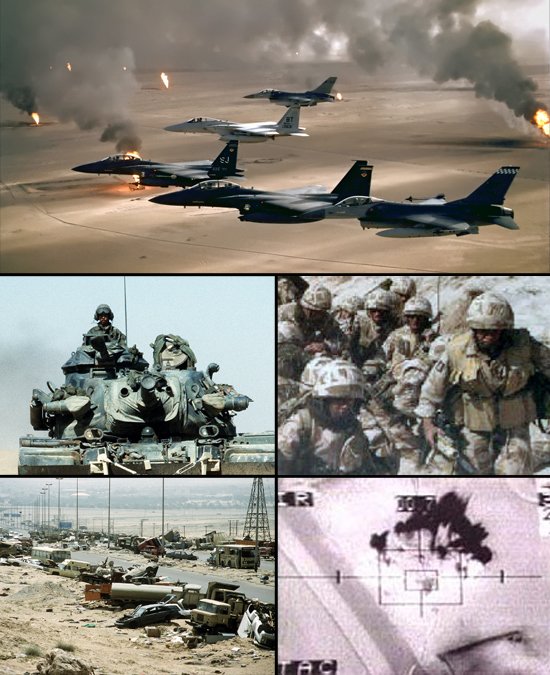The First Gulf War, also known as the Persian Gulf War, was a major conflict that took place in the early 1990s. It began on August 2, 1990, when Iraq, under the leadership of Saddam Hussein, invaded Kuwait. The invasion was met with international condemnation, and the United Nations Security Council passed a series of resolutions demanding Iraq’s immediate withdrawal from Kuwait.
The international community was quick to respond to Iraq’s aggression. A U.S.-led coalition, consisting of forces from over 30 countries, was assembled to counter the Iraqi invasion. This coalition included countries from Europe, the Middle East, and even some Arab nations. The goal was to liberate Kuwait and restore its sovereignty.
The military operation, known as Operation Desert Storm, commenced on January 17, 1991. The coalition forces launched a massive aerial bombardment campaign, targeting key military installations and infrastructure in Iraq and Kuwait. This was followed by a ground offensive, which quickly overwhelmed the Iraqi forces. Within a matter of weeks, Kuwait was liberated, and the Iraqi military was forced to retreat.
The end of the First Gulf War came on February 28, 1991, when a ceasefire was declared. The war had lasted for just over six months, but its impact was far-reaching. The conflict demonstrated the capabilities of modern military technology, with precision-guided munitions and advanced communication systems playing a crucial role in the coalition’s success.
The First Gulf War also had significant implications for international relations. The U.S.-led coalition’s swift and decisive victory showcased American military power and established the United States as the dominant force in the region. It also marked a turning point in the Middle East, with the balance of power shifting away from Iraq and towards Saudi Arabia and other Gulf states.
The war had a profound effect on oil markets as well. Iraq, prior to the invasion, was one of the world’s largest oil producers. The disruption caused by the conflict led to a spike in oil prices, which had a significant impact on the global economy. The war also highlighted the vulnerability of oil-producing nations to geopolitical instability and raised concerns about energy security.
From a military strategy perspective, the First Gulf War demonstrated the effectiveness of a combined arms approach. The coalition forces utilized a combination of air power, ground forces, and naval assets to achieve their objectives. This integrated approach allowed for rapid maneuverability and overwhelming firepower, effectively neutralizing the Iraqi defenses.
However, the First Gulf War also left a complex legacy of geopolitical shifts and human suffering. The conflict resulted in significant civilian casualties, with estimates ranging from tens of thousands to over 100,000. The use of depleted uranium munitions and the destruction of critical infrastructure had long-lasting environmental and health consequences for the region.
In conclusion, the First Gulf War was a pivotal event in modern history. It showcased the capabilities of modern military technology, reshaped international relations, and had a profound impact on oil markets and military strategy. The end of the war on February 28, 1991, marked the liberation of Kuwait and the cessation of hostilities. However, the legacy of the conflict continues to be felt in the region and beyond.
SEO Excerpt:
The First Gulf War, which ended on February 28, 1991, was a brief but intense conflict that saw the U.S.-led coalition liberate Kuwait from Iraqi forces. This article explores the historical background, military strategy, and geopolitical implications of the war. It also highlights the impact of the conflict on oil markets and the long-lasting consequences for the region.

